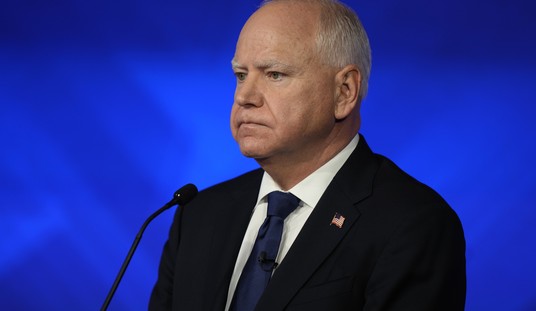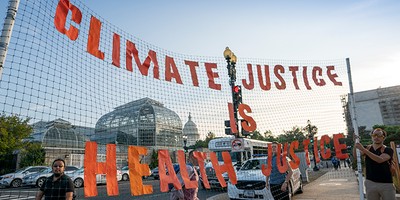In one of Germany’s largest protests in recent history, farmers took to the streets Monday as part of a week-long demonstration to protest diesel subsidy cuts. The massive caravans of tractors and trucks have closed major highways, streets, and blocked access to city centers.
Speaking with Tucker Carlson, Dutch journalist Eva Vlaardingerbroek, who’s been in Germany covering the protests, explained further.
While the most recent proposal from the government to cut fuel subsidies is what triggered the protests, Vlaardingerbroek emphasized that it’s just the latest hit in a series of blows farmers have taken in recent years.
“The German farmers are subjected, just like the Dutch farmers and a lot of farmers around the Western world, to all sorts of new regulations and restrictions all of the time,” she said. “And quite frankly, they feel unheard, they feel unwanted, they feel like they are being harassed off of their land, basically. And they are sick and tired of feeling like they have no right to exist.”
While the government attempted to negotiate, phasing out the diesel subsidy over three years instead of immediately, the farmers were not content.
Carlson wondered why the German government would decide to mess with the people who feed the nation. “Why would you discourage people from growing food? That seems strange,” he said.
Vlaardingerbroek argued it’s part of the “global attack on farming” due to climate change, with radical environmentalists pointing to the sector (and its use of diesel) as one of the main culprits.
Recommended
She described the farmers as hardworking citizens who just want to be left alone to do their job, reiterating that this is not just a German problem.
“I think, [they] feel that they have an establishment that despises them, that doesn't listen to them, that taxes them more and more and more, and spends their money on things that are not in their best interest,” Vlaardingerbroek said. “And, that's something that you hear all over at all of these farmers protests. They're not just saying, hey, you know, we need to get rid of these new measurements. They are basically saying, we need to get rid of the government. The government needs to step down. We are sick and tired of being, unwanted. We are sick and tired of being unheard. And we want to be able to continue to do our jobs without being taxed into oblivion, by an establishment that doesn't have our interests at heart.”
Asked how the protests are being covered in Germany, Vlaardingerbroek said the media is attempting to “demonize the farmers” and call them “far right extremists” who are interested in overthrowing the government.
“In fact…these are ordinary people,” she countered. “Everybody I've spoken to is just there because they are rightfully so, very much upset at the fact that they are paying for what I would say is their own destruction.”
I spoke to @TuckerCarlson about the German Farmers’ protests. 🇩🇪🚜
— Eva Vlaardingerbroek (@EvaVlaar) January 10, 2024
My take on this is: The farmers, blue collar workers and ordinary hardworking citizens feel like they’re being ruled by elites who hate them and everything they stand for. And they’re right. https://t.co/EqI5w7zhzT
— Eva Vlaardingerbroek (@EvaVlaar) January 10, 2024
She also said there is a lot of support in Germany for the protests.
🇩🇪 We asked citizens who got stuck in traffic due to the German farmers’ protests what they thought about it.
— Eva Vlaardingerbroek (@EvaVlaar) January 8, 2024
They fully supported the farmers:
"With the current government, Germany has been going down the drain… The incompetence of these politicians just drives you nuts." https://t.co/Jjvf6GYB1a

























Join the conversation as a VIP Member